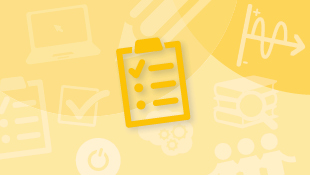-
Courses

Courses
Choosing a course is one of the most important decisions you'll ever make! View our courses and see what our students and lecturers have to say about the courses you are interested in at the links below.
-
University Life

University Life
Each year more than 4,000 choose University of Galway as their University of choice. Find out what life at University of Galway is all about here.
-
About University of Galway

About University of Galway
Since 1845, University of Galway has been sharing the highest quality teaching and research with Ireland and the world. Find out what makes our University so special – from our distinguished history to the latest news and campus developments.
-
Colleges & Schools

Colleges & Schools
University of Galway has earned international recognition as a research-led university with a commitment to top quality teaching across a range of key areas of expertise.
-
Research & Innovation

Research & Innovation
University of Galway’s vibrant research community take on some of the most pressing challenges of our times.
-
Business & Industry

Guiding Breakthrough Research at University of Galway
We explore and facilitate commercial opportunities for the research community at University of Galway, as well as facilitating industry partnership.
-
Alumni & Friends

Alumni & Friends
There are 128,000 University of Galway alumni worldwide. Stay connected to your alumni community! Join our social networks and update your details online.
-
Community Engagement

Community Engagement
At University of Galway, we believe that the best learning takes place when you apply what you learn in a real world context. That's why many of our courses include work placements or community projects.
Lectures and tutorials
Getting the most from lectures and tutorials
The most useful piece of advice for every student is to go to all of your lectures, labs, and tutorials/seminars. This applies even if you feel that they are difficult, boring, or pointless. There is a lot of evidence that shows a very strong link between attendance and performance. As a student, you are expected to attend all lectures, and many lecturers will keep track of your attendance.
It might take a few weeks to figure out your timetable. In the early weeks of each semester it can be confusing trying to find out where your classes take place, which groups you are in, how and when to sign up for tutorials or seminars, and so on. You may find yourself in very large lecture theatres and you might find that the lecture content is delivered at a faster pace than you are used to.
Here are a few tips to get the most out of lectures and tutorials:
Before your lecture
If your lecturer makes their lecture slides available on Canvas in advance, get into the habit of reviewing them before you go to the lecture. This gives you an idea of what to expect and a chance to look up unfamiliar words and concepts, making you much more likely to benefit from the lecture.
Some lecturers employ a ‘flipped classroom’ approach, where you are expected to do your learning in advance, and then use class time for questions, discussion and debate, problem-solving, and other in-class activities. Take a look at this All Aboard tutorial on the flipped classroom to find out more.
Lecture Times
Arrive in good time for lectures and tutorials. Lectures start on the hour, and finish ten minutes before the hour. Missing the first few minutes can leave you feeling like you’re playing catch-up for the rest of the session. Sit where you can see and hear clearly without too many distractions.
Note-taking
Develop a note-taking technique that works for you - you might need to experiment with different approaches - see our top tips for note taking.
After your lecture
Lectures usually act as an introduction to module content. It’s up to you to flesh them out by attending tutorials, labs, or seminars, and by further reading, research, and assignments – see the Reading and Research Skills and Assignments and Exams sections of the Academic Skills Hub. See also our guide to independent learning for tips on taking responsibility for your own learning.
Tutorials
Come prepared to your tutorials. This means completing any assigned reading or homework and bringing it along for discussion and review. Because tutorials comprise much smaller groups than lectures, they provide opportunities for analysis and discussion that don’t tend to happen in lectures. It's far easier to ask a question or ask the tutor to go over something again in a tutorial than in a lecture!

















